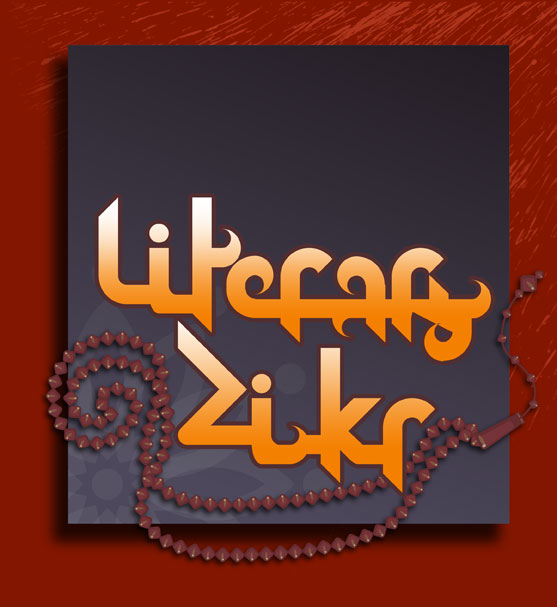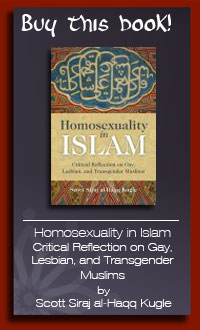





Notes and Definitions of Key Terms
Page: 1 | 2 | 3 | Notes 1 | Notes 2 | Notes 3 | Notes 4
The pronunciation key is intended to give English-speaking readers a close approximation of the word in Arabic. It can not provide a perfect equivalent, however, because some Arabic sounds do not exist in English.
Page: 1 | 2 | 3 | Notes 1 | Notes 2 | Notes 3 | Notes 4
The pronunciation key is intended to give English-speaking readers a close approximation of the word in Arabic. It can not provide a perfect equivalent, however, because some Arabic sounds do not exist in English.
IMPORTANT TERMS IN ISLAM
Islam
Islam (ih-SLAM) is a monotheistic religion, which teaches that only one God exists. It originated in the Arabian city of Mecca around 610 CE. Muslims see Islam as following from the same monotheistic tradition as Judaism and Christianity. The three religions together are sometimes called Abrahamic faiths, because they trace their history back to the Biblical figure, Abraham(PBUH). According to a 2009 study by the Pew Research Center, Islam is followed by 23% of the world population—over 1.5 billion people.
Islamic
The word "Islamic" is an adjective that refers to things—not people—connected to the religion of Islam. For example, we may talk about Islamic history, an Islamic nation, or Islamic art. When referring to people who follow the religion of Islam, we use the adjective "Muslim."
Islamic Law
Islamic law is a legal system that is based on shari'ah. Shari'ah drew from the Qur'an, hadith and decisions made by early rulers of Islam. It provided Muslims with guidance in many areas of life. However, Muslim rulers wanted a way to make shari'ah into law. To do that, they had to create fixed rules out of the flexible guidance of shari'ah. The result was Islamic law. However, there is not just one Islamic law. Since Islamic law was created by people, there are different versions of Islamic law based on different Islamic schools of thought.
Muslim
A Muslim is someone who believes in only one god (God, or Allah) and believes that Muhammad(PBUH) was a messenger, or prophet, of God. In practice, it also means someone who calls him- or herself a Muslim. The plural of Muslim is Muslims.
PBUH
PBUH stands for "peace be upon him." The Arabic equivalent ("SAWS") is sometimes used instead. These phrases are used by Muslims after the name of any prophet, as a way of showing honor and respect.
Qur'an
The Qur'an (kewr-ANN) is the holy book of Muslims. It is sometimes also written "Koran." The Qur'an is written in poetic form in Arabic. It contains 114 chapters, which vary in length from 3 verses to 286 verses. Muslims believe that the Qur'an was revealed to the Prophet Muhammad(PBUH) in a series of divine revelations between 610 CE and 632 CE. During his lifetime, Muslims memorized all the verses of the Qur'an and began writing them down. After Muhammad(PBUH) died, his followers put the verses of the Qur'an together in one book, in the order they are in now.
Shari'ah
Shari'ah (SHA-ree-ah) comes from the Arabic for "way" or "path". Shari'ah is not a legal system, although the word is often used to mean "Islamic law." Shari'ah is the entire way of life in Islam, as people understand it according to traditional, early interpretations. [To learn more about the basis of shari'ah, read the Literary Zikr article "Is Islamic Family Law today really based on Shari'a?" adapted from the work of Dr. Abdullahi Ahmed An-Na'im here.]
Sodom
According the Qur'an, the Prophet Lut(PBUH) was sent as a prophet to the people of Sodom. When they did not heed Lut's warnings, the city was destroyed.
Zina
Muslim jurists believed that the Arabic term zina in the Qur'an referred to adultery, based on passages of the Qur'an. Adultery—commonly called "having an affair"—refers to sexual activity between a married man or woman and a person to whom he or she is not married.
These jurists then reasoned that sex between an unmarried man and a woman to whom he is not married—sometimes called "fornication"—is also a crime but with a lighter penalty. Muslim jurists did not agree about whether sex between two males or between two females qualified as zina and whether it was a crime equivalent to adultery.
Islamic schools of thought
Islamic schools of thought—or madhab—are based on the works of early scholars. In the Sunni (SUE-nee) tradition, these include the Hanafi, Maliki, Shafi'i and Hanbali schools of thought. In the Shi'a (SHE-ah) tradition, the most notable is the Jafari school of thought. Other schools of thought exist, such as Ismaili, Zaidi, Ahmedi, and numerous Sufi (SUE-fee) groups. The plural of madhab (MATH-hab, with TH like "than") is madhahib (math-ah-HEEB).
Hanafi school of thought
•It was founded by Abu Hanifa an-Nu'man ibn Thābit (699-767 CE).
•It was one of the first schools of thought to develop and most widespread.
•It originated in Iraq.
•It was officially supported by the Abbasid Caliphate earlier; and the Ottoman Empire more recently.
•The Hanafi school puts the greatest emphasis on reason.
•It is primarily followed in Afghanistan, Turkey, Iraq, Syrian, Balkan states, Cyprus, Jordan, Sudan, Israel and Palestine, Egypt, the Indian Subcontinent, Afghanistan.
Zahiri school of thought
•It was founded by Da'ud ibn Khalaf, also known as Da'ud al-Zahiri (died 883 CE).
•Da'ud ibn Khalaf was known as al-Zahiri (which derives from the word "literal") because of his focus on the literal meaning of the Qur'an.
•Persecution by both Sunnis and Shi'as led to the near disappearance of this school of thought.
•The modern Salafi school of thought has been influenced by the Zahiri school.
-------------------------------------------------------------------------------
Islam
Islam (ih-SLAM) is a monotheistic religion, which teaches that only one God exists. It originated in the Arabian city of Mecca around 610 CE. Muslims see Islam as following from the same monotheistic tradition as Judaism and Christianity. The three religions together are sometimes called Abrahamic faiths, because they trace their history back to the Biblical figure, Abraham(PBUH). According to a 2009 study by the Pew Research Center, Islam is followed by 23% of the world population—over 1.5 billion people.
Islamic
The word "Islamic" is an adjective that refers to things—not people—connected to the religion of Islam. For example, we may talk about Islamic history, an Islamic nation, or Islamic art. When referring to people who follow the religion of Islam, we use the adjective "Muslim."
Islamic Law
Islamic law is a legal system that is based on shari'ah. Shari'ah drew from the Qur'an, hadith and decisions made by early rulers of Islam. It provided Muslims with guidance in many areas of life. However, Muslim rulers wanted a way to make shari'ah into law. To do that, they had to create fixed rules out of the flexible guidance of shari'ah. The result was Islamic law. However, there is not just one Islamic law. Since Islamic law was created by people, there are different versions of Islamic law based on different Islamic schools of thought.
Muslim
A Muslim is someone who believes in only one god (God, or Allah) and believes that Muhammad(PBUH) was a messenger, or prophet, of God. In practice, it also means someone who calls him- or herself a Muslim. The plural of Muslim is Muslims.
PBUH
PBUH stands for "peace be upon him." The Arabic equivalent ("SAWS") is sometimes used instead. These phrases are used by Muslims after the name of any prophet, as a way of showing honor and respect.
Qur'an
The Qur'an (kewr-ANN) is the holy book of Muslims. It is sometimes also written "Koran." The Qur'an is written in poetic form in Arabic. It contains 114 chapters, which vary in length from 3 verses to 286 verses. Muslims believe that the Qur'an was revealed to the Prophet Muhammad(PBUH) in a series of divine revelations between 610 CE and 632 CE. During his lifetime, Muslims memorized all the verses of the Qur'an and began writing them down. After Muhammad(PBUH) died, his followers put the verses of the Qur'an together in one book, in the order they are in now.
Shari'ah
Shari'ah (SHA-ree-ah) comes from the Arabic for "way" or "path". Shari'ah is not a legal system, although the word is often used to mean "Islamic law." Shari'ah is the entire way of life in Islam, as people understand it according to traditional, early interpretations. [To learn more about the basis of shari'ah, read the Literary Zikr article "Is Islamic Family Law today really based on Shari'a?" adapted from the work of Dr. Abdullahi Ahmed An-Na'im here.]
Sodom
According the Qur'an, the Prophet Lut(PBUH) was sent as a prophet to the people of Sodom. When they did not heed Lut's warnings, the city was destroyed.
Zina
Muslim jurists believed that the Arabic term zina in the Qur'an referred to adultery, based on passages of the Qur'an. Adultery—commonly called "having an affair"—refers to sexual activity between a married man or woman and a person to whom he or she is not married.
These jurists then reasoned that sex between an unmarried man and a woman to whom he is not married—sometimes called "fornication"—is also a crime but with a lighter penalty. Muslim jurists did not agree about whether sex between two males or between two females qualified as zina and whether it was a crime equivalent to adultery.
Islamic schools of thought
Islamic schools of thought—or madhab—are based on the works of early scholars. In the Sunni (SUE-nee) tradition, these include the Hanafi, Maliki, Shafi'i and Hanbali schools of thought. In the Shi'a (SHE-ah) tradition, the most notable is the Jafari school of thought. Other schools of thought exist, such as Ismaili, Zaidi, Ahmedi, and numerous Sufi (SUE-fee) groups. The plural of madhab (MATH-hab, with TH like "than") is madhahib (math-ah-HEEB).
Hanafi school of thought
•It was founded by Abu Hanifa an-Nu'man ibn Thābit (699-767 CE).
•It was one of the first schools of thought to develop and most widespread.
•It originated in Iraq.
•It was officially supported by the Abbasid Caliphate earlier; and the Ottoman Empire more recently.
•The Hanafi school puts the greatest emphasis on reason.
•It is primarily followed in Afghanistan, Turkey, Iraq, Syrian, Balkan states, Cyprus, Jordan, Sudan, Israel and Palestine, Egypt, the Indian Subcontinent, Afghanistan.
Zahiri school of thought
•It was founded by Da'ud ibn Khalaf, also known as Da'ud al-Zahiri (died 883 CE).
•Da'ud ibn Khalaf was known as al-Zahiri (which derives from the word "literal") because of his focus on the literal meaning of the Qur'an.
•Persecution by both Sunnis and Shi'as led to the near disappearance of this school of thought.
•The modern Salafi school of thought has been influenced by the Zahiri school.
-------------------------------------------------------------------------------
IMPORTANT FIGURES IN ISLAM
Al-Ghazali
Abu-Hamid Muhammad ibn Muhammad Al-Ghazali, also referred to as Imam Al-Ghazali, was an early Muslim theologian, jurist and philosopher who lived from 1058 to 1111 CE in Tus, a city in modern day Iran.
Al-Kisa'i
Muhammad ibn Abdallah Al-Kisa'i is believed to have lived in the 12th or 13th century. He wrote some of the most famous Qisas al-Anbiya (stories of the Prophets). His work can be found in English in Tales of the Prophets (Qisas al-anbiya). Translated by Wheeler M. Thackston, Jr. Great Books of the Islamic World, ed. Seyyed Hossein Nasr. Chicago, IL: KAZI Publications, 1997.
God
Muslims believe in one God, who created the world and everything in it—the same God in whom Jews and Christians believe. In Arabic, the word for God is Allah (uh-LA) and it is used by both Arabic-speaking Muslims and Christians.
Jibra'il
In Islam, Jibra'il (Jib-ra-EEL, or Gabriel in English) is an archangel who communicates God's messages to prophets. Muslims believe that Jibra'il appeared to the Prophet Muhammad(PBUH) and instructed him to teach others about Islam.
Prophet Lut(PBUH)
Muslims believe that Lut(PBUH) (LOOT)—called Lot in English—was a prophet in the time of Ibrahim (Abraham). His story is told or mentioned in a number of places in the Qur'an.
Prophet Muhammad(PBUH)
Muhammad(PBUH) (mew-HA-med) was the founder of Islam. Muslims believe he was a prophet and messenger of God, following in a long line of prophets dating back to the Biblical figures Noah(PBUH), Abraham(PBUH) and Moses(PBUH). He was born in the city of Mecca and lived roughly between 570 and 632 CE. Initially a merchant, he began receiving divine revelations at the age of 40. To escape persecution, he and his early followers emigrated to the nearby city of Yathrib, which was renamed Medina. Muhammad's name is sometimes spelled in different ways, such as Mohamed.
Umm Salama
Born Hind al Makhzumia, Umm Salama was a wife of the Prophet Muhammad. She and her first husband were among the early converts to Islam.
--------------------------------------------------------------------------------
Al-Ghazali
Abu-Hamid Muhammad ibn Muhammad Al-Ghazali, also referred to as Imam Al-Ghazali, was an early Muslim theologian, jurist and philosopher who lived from 1058 to 1111 CE in Tus, a city in modern day Iran.
Al-Kisa'i
Muhammad ibn Abdallah Al-Kisa'i is believed to have lived in the 12th or 13th century. He wrote some of the most famous Qisas al-Anbiya (stories of the Prophets). His work can be found in English in Tales of the Prophets (Qisas al-anbiya). Translated by Wheeler M. Thackston, Jr. Great Books of the Islamic World, ed. Seyyed Hossein Nasr. Chicago, IL: KAZI Publications, 1997.
God
Muslims believe in one God, who created the world and everything in it—the same God in whom Jews and Christians believe. In Arabic, the word for God is Allah (uh-LA) and it is used by both Arabic-speaking Muslims and Christians.
Jibra'il
In Islam, Jibra'il (Jib-ra-EEL, or Gabriel in English) is an archangel who communicates God's messages to prophets. Muslims believe that Jibra'il appeared to the Prophet Muhammad(PBUH) and instructed him to teach others about Islam.
Prophet Lut(PBUH)
Muslims believe that Lut(PBUH) (LOOT)—called Lot in English—was a prophet in the time of Ibrahim (Abraham). His story is told or mentioned in a number of places in the Qur'an.
Prophet Muhammad(PBUH)
Muhammad(PBUH) (mew-HA-med) was the founder of Islam. Muslims believe he was a prophet and messenger of God, following in a long line of prophets dating back to the Biblical figures Noah(PBUH), Abraham(PBUH) and Moses(PBUH). He was born in the city of Mecca and lived roughly between 570 and 632 CE. Initially a merchant, he began receiving divine revelations at the age of 40. To escape persecution, he and his early followers emigrated to the nearby city of Yathrib, which was renamed Medina. Muhammad's name is sometimes spelled in different ways, such as Mohamed.
Umm Salama
Born Hind al Makhzumia, Umm Salama was a wife of the Prophet Muhammad. She and her first husband were among the early converts to Islam.
--------------------------------------------------------------------------------
MPV thanks the generous contribution of the Human Rights Campaign for making this adaptation possible.

